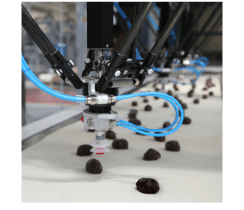In the corporate world, discussions of responsibility typically evoke scenes of environmental activism, climate change initiatives, and philanthropy. Contrast this with technology, where thoughts naturally drift to digital transformation, the shift away from paper, and the adoption of new software and hardware, and increasingly artificial intelligence. Yet, in the digital age, the realms of responsibility and technology, once distinct, have become intricately intertwined. This evolution has given rise to the concept of “technological social responsibility,” highlighting the need to integrate corporate responsibility with the rapidly advancing technological landscape.
This blending has led to the creation of new concepts such as ‘corporate digital technology’ and ‘technological social responsibility.’ These terms represent a growing need in the global business landscape to harmonize corporate responsibility (CR) with technology. The once-clear boundaries between sustainability and digitization are now fading, indicating a major shift in corporate strategies.
As organizations increasingly prioritize sustainability, aligning with Environment, Social, and Governance (ESG) values, their success and competitiveness are redefined. This evolution, acknowledged by roughly 90% of executives, signifies a deeper commitment to sustainable practices rather than a fleeting trend.
However, the environmental impact of the expanding technology sector, particularly the ‘technology footprint,’ often goes unnoticed. Everyday digital activities, like sending emails or using cloud services, leave a notable carbon footprint.
Redefining corporate sustainability in the digital workplace
The widespread shift to remote work has undeniably brought environmental benefits, primarily through reduced commuting.
However, as we delve deeper into the digital era, the environmental cost of technology usage in a corporate setting becomes increasingly significant. The carbon footprint of a typical business user’s annual email communication is equivalent to a 200-mile car journey. This reality underscores the need for a comprehensive reevaluation of sustainability policies within the corporate world, focusing not just on environmental benefits, but also on financial gains and improved employee well-being.
In this context, it becomes crucial to integrate environmental considerations into every aspect of their business operations, including energy use and digital infrastructure.
To curb this growing digital carbon footprint, companies are exploring various strategies. Key among these is the shift towards renewable energy and more efficient energy usage. Understanding current energy consumption and setting measurable targets are critical first steps. Additionally, migrating software platforms to carbon-neutral public cloud providers can offer a more efficient alternative. These providers, driven by profitability, invest in cutting-edge technology and efficient capacity optimization.
Sustainability: build trust and value
As sustainability increasingly becomes a fundamental part of the narrative for leading businesses, it centers around the dual concept of creating value for sustainability and allowing sustainability initiatives to generate long-term value for the company itself.
This approach necessitates a forward-thinking mindset, where sustainability is an integral and inseparable element of long-term business strategy.
A crucial aspect of this journey is the communication of sustainability efforts through reports, which have gained significant importance in the corporate world in recent decades. These documents are crucial in presenting your organization’s advancements towards various goals, including performance, employee well-being, social responsibility, and environmental impact.
At Yellow Hub, we understand the importance of effectively communicating these achievements to your stakeholders, especially in a world where language should not be a barrier to understanding and appreciation. As your organization prepares to share its sustainability journey, let us be the bridge that connects your message with a global audience.















